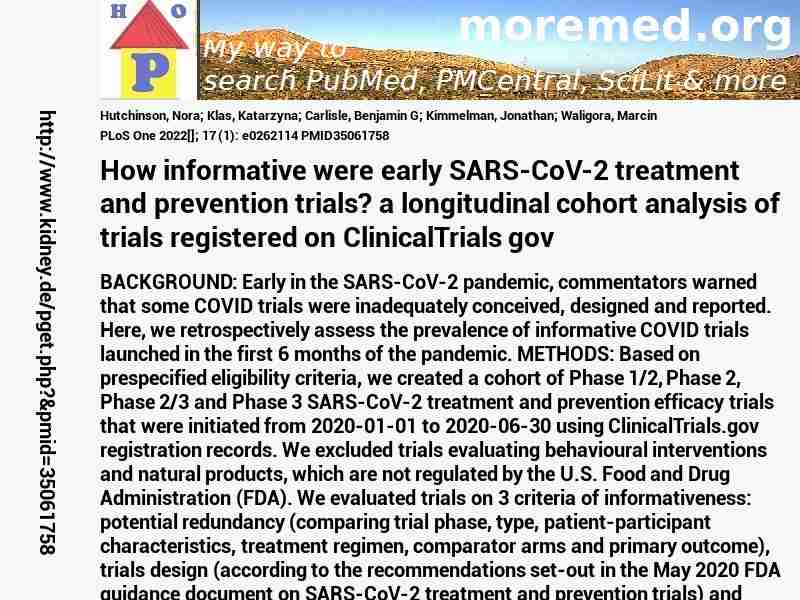
|
10.1371/journal.pone.0262114
http://scihub22266oqcxt.onion/10.1371/journal.pone.0262114

35061758!8782516!35061758
 free free
 free free
 free free
Warning: file_get_contents(https://eutils.ncbi.nlm.nih.gov/entrez/eutils/elink.fcgi?dbfrom=pubmed&id=35061758&cmd=llinks): Failed to open stream: HTTP request failed! HTTP/1.1 429 Too Many Requests
in C:\Inetpub\vhosts\kidney.de\httpdocs\pget.php on line 215
|  
Deprecated: Implicit conversion from float 213.6 to int loses precision in C:\Inetpub\vhosts\kidney.de\httpdocs\pget.php on line 534
Deprecated: Implicit conversion from float 213.6 to int loses precision in C:\Inetpub\vhosts\kidney.de\httpdocs\pget.php on line 534
Deprecated: Implicit conversion from float 213.6 to int loses precision in C:\Inetpub\vhosts\kidney.de\httpdocs\pget.php on line 534
Deprecated: Implicit conversion from float 213.6 to int loses precision in C:\Inetpub\vhosts\kidney.de\httpdocs\pget.php on line 534
Deprecated: Implicit conversion from float 213.6 to int loses precision in C:\Inetpub\vhosts\kidney.de\httpdocs\pget.php on line 534
Deprecated: Implicit conversion from float 213.6 to int loses precision in C:\Inetpub\vhosts\kidney.de\httpdocs\pget.php on line 534
Deprecated: Implicit conversion from float 213.6 to int loses precision in C:\Inetpub\vhosts\kidney.de\httpdocs\pget.php on line 534
Deprecated: Implicit conversion from float 213.6 to int loses precision in C:\Inetpub\vhosts\kidney.de\httpdocs\pget.php on line 534
Deprecated: Implicit conversion from float 247.2 to int loses precision in C:\Inetpub\vhosts\kidney.de\httpdocs\pget.php on line 534
Deprecated: Implicit conversion from float 247.2 to int loses precision in C:\Inetpub\vhosts\kidney.de\httpdocs\pget.php on line 534
Deprecated: Implicit conversion from float 247.2 to int loses precision in C:\Inetpub\vhosts\kidney.de\httpdocs\pget.php on line 534
Deprecated: Implicit conversion from float 247.2 to int loses precision in C:\Inetpub\vhosts\kidney.de\httpdocs\pget.php on line 534
Deprecated: Implicit conversion from float 247.2 to int loses precision in C:\Inetpub\vhosts\kidney.de\httpdocs\pget.php on line 534
Warning: imagejpeg(C:\Inetpub\vhosts\kidney.de\httpdocs\phplern\35061758.jpg): Failed to open stream: No such file or directory in C:\Inetpub\vhosts\kidney.de\httpdocs\pget.php on line 117
 PLoS+One 2022 ; 17 (1): e0262114 PLoS+One 2022 ; 17 (1): e0262114
Nephropedia Template TP
gab.com Text
Twit Text FOAVip
Twit Text #
English Wikipedia
|
How informative were early SARS-CoV-2 treatment and prevention trials? a longitudinal cohort analysis of trials registered on ClinicalTrials gov #MMPMID35061758Hutchinson N; Klas K; Carlisle BG; Kimmelman J; Waligora MPLoS One 2022[]; 17 (1): e0262114 PMID35061758show ga
BACKGROUND: Early in the SARS-CoV-2 pandemic, commentators warned that some COVID trials were inadequately conceived, designed and reported. Here, we retrospectively assess the prevalence of informative COVID trials launched in the first 6 months of the pandemic. METHODS: Based on prespecified eligibility criteria, we created a cohort of Phase 1/2, Phase 2, Phase 2/3 and Phase 3 SARS-CoV-2 treatment and prevention efficacy trials that were initiated from 2020-01-01 to 2020-06-30 using ClinicalTrials.gov registration records. We excluded trials evaluating behavioural interventions and natural products, which are not regulated by the U.S. Food and Drug Administration (FDA). We evaluated trials on 3 criteria of informativeness: potential redundancy (comparing trial phase, type, patient-participant characteristics, treatment regimen, comparator arms and primary outcome), trials design (according to the recommendations set-out in the May 2020 FDA guidance document on SARS-CoV-2 treatment and prevention trials) and feasibility of patient-participant recruitment (based on timeliness and success of recruitment). RESULTS: We included all 500 eligible trials in our cohort, 58% of which were Phase 2 and 84.8% were directed towards the treatment of SARS-CoV-2. Close to one third of trials met all three criteria and were deemed informative (29.9% (95% Confidence Interval 23.7-36.9)). The proportion of potentially redundant trials in our cohort was 4.1%. Over half of the trials in our cohort (56.2%) did not meet our criteria for high quality trial design. The proportion of trials with infeasible patient-participant recruitment was 22.6%. CONCLUSIONS: Less than one third of COVID-19 trials registered on ClinicalTrials.gov during the first six months met all three criteria for informativeness. Shortcomings in trial design, recruitment feasibility and redundancy reflect longstanding weaknesses in the clinical research enterprise that were likely amplified by the exceptional circumstances of a pandemic.|*COVID-19 Drug Treatment[MESH]|Antiviral Agents/*therapeutic use[MESH]|COVID-19/*epidemiology/prevention & control/virology[MESH]|Clinical Trials, Phase I as Topic/ethics[MESH]|Clinical Trials, Phase II as Topic/ethics[MESH]|Clinical Trials, Phase III as Topic/ethics[MESH]|Humans[MESH]|Patient Selection/ethics[MESH]|Practice Guidelines as Topic[MESH]|Research Design/*statistics & numerical data[MESH]
  
DeepDyve
Pubget Overpricing | 
|